Consumer Info
What is the Louisiana Board of Examiners in Dietetics and Nutrition (LBEDN)?
The Louisiana Board of Examiners in Dietetics and Nutrition (LBEDN) was created by the Louisiana Legislature to safeguard the public’s health, safety, and welfare. It is one of the professional boards under the auspice of the Department of Health and Hospitals. LBEDN is responsible for consumer protection through the regulation of dietetic and nutrition practice.
Individuals who seek dietetic and/or nutrition services are entitled to receive quality care. That is why the Board’s mission is to assure the consumer of qualified licensed professionals. In pursuing this goal, a process is provided by which consumers may file complaints against licensees or persons practicing dietetics and/or nutrition without a license.
How do I request a Mailing List?
Mailing List Request Forms should be emailed to tjeanmarie@lbedn.org.
Who Can/Should File a Complaint?
A complaint should be filed by anyone who believes that an individual has acted illegally, irresponsibly, or unprofessionally in providing care to a client. The most effective complaints are those that contain firsthand, verifiable information. The Board cannot act on anonymous complaints. Therefore, all complaints must include a signature and contact information.
What Types of Complaints Does LBEDN Handle?
Complaints under the jurisdiction of LBEDN include:
• Violation of the LBEDN Rules for Professional Conduct
• Violation of the LBEDN Rules and Regulations
• Violation of the Practice Act
What Types of Complaints are Outside LBEDN’s Jurisdiction?
LBEDN does not investigate fee or billing disputes, or personality conflicts. LBEDN does not have jurisdiction over persons who are licensed by other boards or those exempt under R.S.37:3093 of the Louisiana Dietetic/Nutrition Practice Act. These types of complaints will be referred to the appropriate agency, and the complainant will be notified.
How Do I File a Complaint Against a Practitioner?
A complaint must first be submitted online and electronically signed before it can be processed. Individuals who file complaints are notified in writing of the status of their complaint throughout the process.
When submitting a complaint, a statement should be provided in the individual’s own words, which explains the nature of the complaint. As much detail as possible should be provided, as well as copies of any documents, such as patient records (with personal identifiers removed), photographs, contracts, correspondence, etc., that can be used as evidence. Original copies should not be mailed. Dates, times and the type of service received should be included whenever possible. It is not necessary to cite sections of the law that have been violated.
How Do I File a Complaint regarding the Board?
In compliance with Act 655 of the 2018 Regular Legislative Session, licensees and applicants can file complaints about Board actions or procedures to one or more of the following organizations:
LBEDN; 37283 Swamp Road, Suite 3B, Prairieville, LA 70769; (225) 313-6590; jjones@lbespa.org
Committee on House & Governmental Affairs; La House of Representatives, P.O. Box 44486, Baton Rouge, LA 70804; (225) 342-2403; h&ga@legis.la.gov
Committee on Senate & Governmental Affairs; La Senate, P.O. Box 94183, Baton Rouge, LA 70804; (225) 342-9845; s&g@legis.la.gov
How are Complaints Processed?
Notification of the receipt of the complaint will be mailed within ten (10) days of its arrival. Complaints are reviewed by board members at the next regularly scheduled meeting. The board may dispose of the complaint informally through correspondence or conference or may forward the written complaint to a complaint investigation officer (CIO).
If forwarded to a CIO, the investigator may contact the complainant during the course of the investigation. While details of the complaint and the investigation are confidential and are not public record, they must be disclosed to the licensee at some point during the administrative process.
Referral to the Attorney General.
If the CIO recommends a formal disciplinary hearing and the board accepts the recommendation, the complaint is forwarded to the Attorney General who represents the State in the matter.
Consent Orders.
The CIO, Attorney General, or the Board may resolve a complaint through a consent order entered into by the licensee and the board. If the order contains any agreement by the licensee to some remedial course of action, the agreement must be signed by the licensee and the board, and it becomes a matter of public record.
Formal Disciplinary Hearing.
The licensee is notified 30 days in advance by certified mail of a disciplinary hearing along with a formal statement of the charges. The letter of notice and the hearing, are governed by the Administrative Procedure Act (R.S. 49:955).
The licensee is advised of the right to be represented by legal counsel and that a court reporter will be present to make an accurate recording of all testimony. The burden of proof in a disciplinary hearing rests upon the Attorney General who brings the charges before the Board.
Final decisions are matters of public record, and copies are available upon request. The complainant is always mailed a copy of LBEDN’s final decision. The hearing process can take up to a year from the filing of the complaint to the date of the formal disciplinary hearing.
Disciplinary Options.
The following options are available to LBEDN:
• Revocation of license
• Suspension of license
• Probation
• Restriction of license
• Censure
• Reprimand
• Restitution
The Board will notify the professional community within 30 days of any final disciplinary action, including the disciplined licensee’s name, location, offense and sanction imposed. A notice of disciplinary action will also be published in the Board’s newsletter.
Are Licensees Required to Report Unprofessional Conduct by Colleagues?
The LBEDN Rules for Professional Conduct mandate that the licensee shall be responsible for reporting alleged misrepresentation or violation of the act and/or the rules to the Board.
Should Unlicensed Practice be Reported to LBEDN?
Yes. If there is evidence that a person is practicing without a license, LBEDN should be notified in writing. The Board will investigate the allegations and, if sufficient evidence is found, will refer the matter to the local District Attorney for prosecution.
